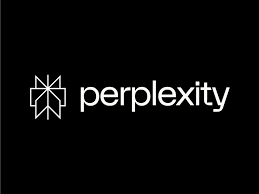Perplexity AI has launched a revenue-sharing program for publishers following allegations of plagiarism from various media outlets. Among the first to join the “Publishers Program” are renowned names like Fortune, Time, Entrepreneur, The Texas Tribune, Der Spiegel, and WordPress.com.
Background and Controversy
The controversy began in June when Forbes reported finding its paywalled original content plagiarized within Perplexity AI’s Pages tool, identified only by a small “F” logo. Wired also reported similar issues, noting that an IP address likely linked to Perplexity visited its parent company’s websites over 800 times in three months. These accusations came on the heels of Perplexity AI raising new funding in April, boosting its valuation to over $1 billion.
Revenue Sharing Model
Under the new partner program, Perplexity will share a flat percentage of the advertising revenue generated when a user query cites a publisher’s article. Perplexity AI calculates the revenue share on a per-article basis, so if an answer uses multiple articles from one publisher, that publisher earns multiple shares of the revenue. Dmitry Shevelenko, Perplexity’s chief business officer, confirmed it is a double-digit figure, although he did not disclose the exact percentage.
Shevelenko mentioned that interest in the program surged shortly after its launch, with more than a dozen publishers expressing interest within hours. The goal is to enrol 30 publishers by the end of the year, and Perplexity plans to collaborate with publishers’ ad sales teams to sell ads against all Perplexity inventory.
Additional Support for Publishers
Perplexity’s blog post details additional benefits for publishers, such as API credits and analytics from ScalePost.ai, which provide insights into how the platform cites their content. The company began engaging with publishers in January and finalized the revenue-sharing program’s framework by the first quarter of 2024. Five Perplexity employees are dedicated to this initiative.
Industry Context
This development occurs amid a growing conflict between AI startups and media outlets. Many publications are striving to safeguard their businesses against the rise of AI-generated content. The Center for Investigative Reporting, along with other publications like The New York Times and Chicago Tribune, has sued AI companies like OpenAI for alleged copyright infringement.
Collaborative Efforts
Not all news organizations are adversarial. Some, like Time magazine, have forged partnerships with AI companies. In June, OpenAI and Time magazine announced a multi-year content deal, granting OpenAI access to current and archived articles from Time’s extensive history. In May, OpenAI and News Corp. established a similar partnership, encompassing publications like The Wall Street Journal and the New York Post.
Conclusion
Perplexity AI’s revenue-sharing program marks a significant step in addressing plagiarism concerns and fostering collaboration with publishers. By offering a fair share of advertising revenue, Perplexity aims to balance innovation with ethical content usage, setting a precedent for other AI startups navigating similar challenges.
See also: Meta’s AI Studio Revolutionizes Chatbot Creation Without Coding


















